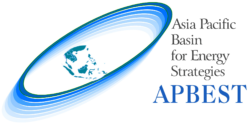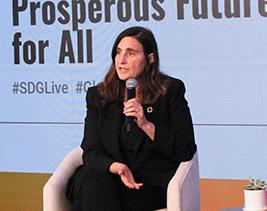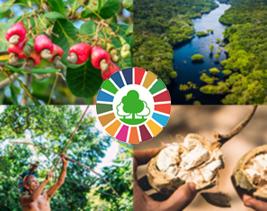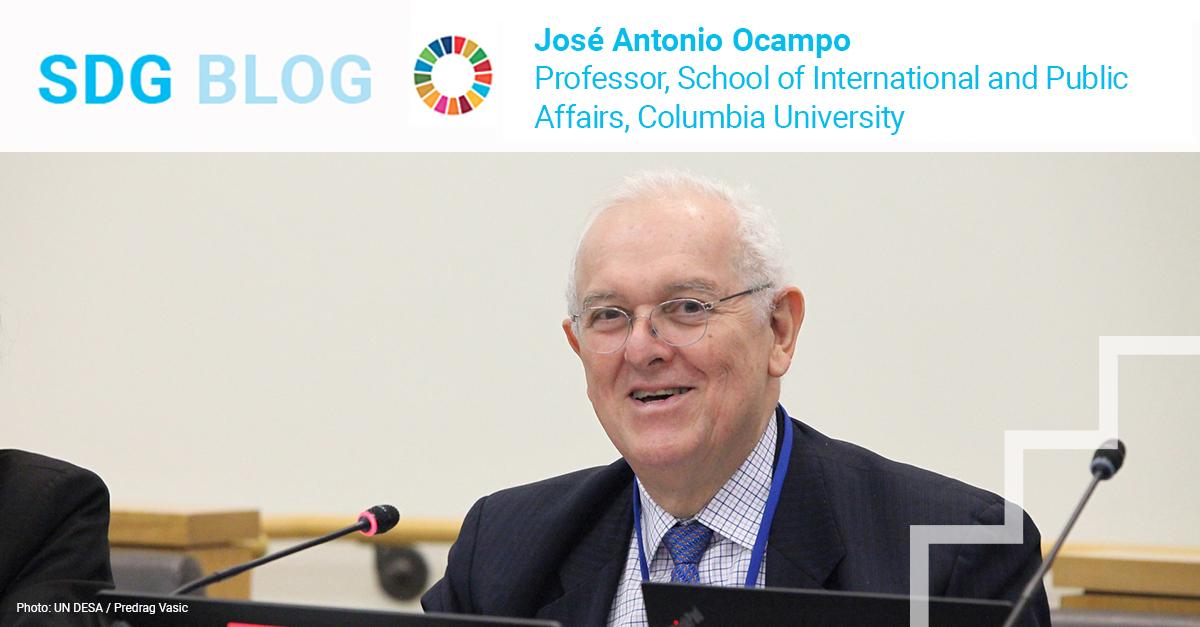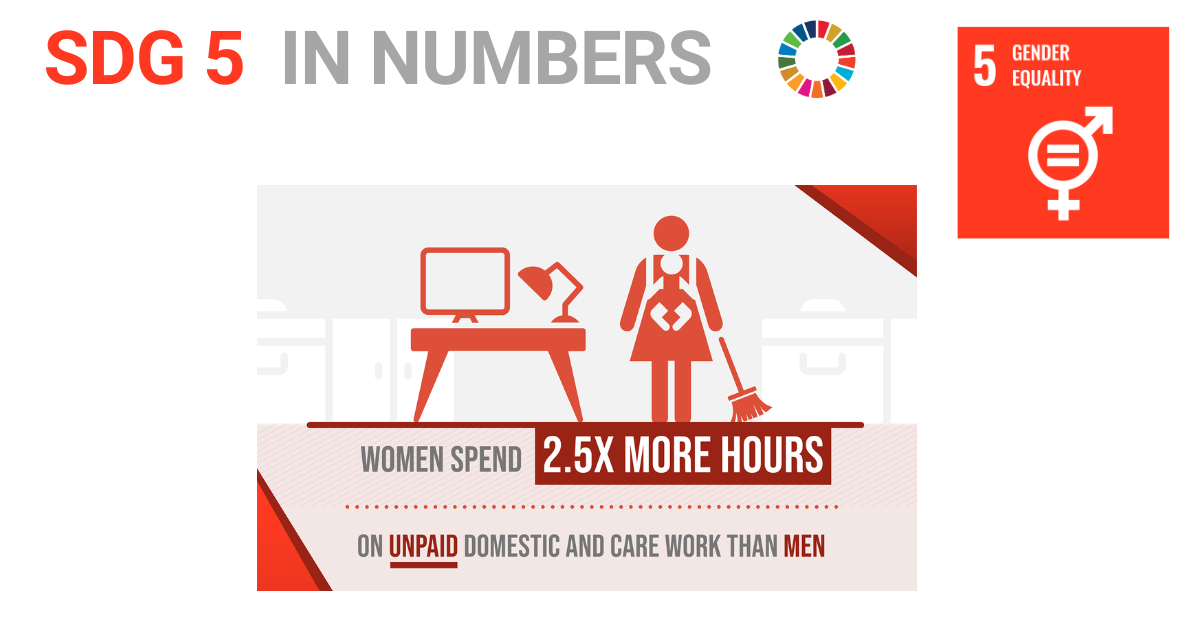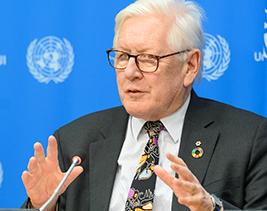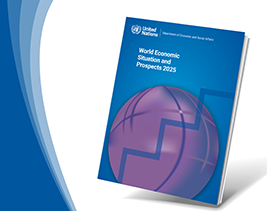MONTHLY NEWSLETTER, VOL. 29, NO. 3 – MARCH 2025
Statisticians come together with a shared vision to secure trusted data
“Data are critically important for everyone,” says Stefan Schweinfest, Director of UN DESA’s Statistics Division. “All the decisions that you take in your life, you’re basing them on data,” he stressed, as we spoke on the important work of the UN Statistical Commission. On 4-7 March 2025, some 600 statisticians from across the world will come together at UN Headquarters in New York to ensure better data, better lives.
From everyday choices – what clothes to wear based on temperature data; or what route to take when commuting; to informing decisions that matter for improving peoples’ lives – it is all based on data. “You need to know how many people you have in your country and what groups you have to take particular care of,” Mr. Schweinfest said, explaining the importance of data in managing services like health care and education.
Commission to focus on two big topics this year
A veteran in the statistical community, we met Mr. Schweinfest on the eve of the Commission’s 56th session. He shared that two big topics will be addressed this year – the 2025 Systems of National Accounts, and the 2030 World Population and Housing Census Programme.
“We will adopt a new system of national accounts,” he explained, describing its most recognized element, the Gross Domestic Product (GDP). “The system of national accounts is the guidebook to measure your economy the same way, whether you are in Mongolia or in Paraguay,” he said, noting that using the same statistical language enables countries to successfully exchange information and experiences.
“Every decade, the United Nations calls and declares a census round,” Mr. Schweinfest continued, describing the process of countries committing to counting their people. The census will help the international community better understand where people live and what their living conditions are, which later forms the basis for policy advice and decisions. “At the end, we will have good numbers for all of the countries and the whole world,” he explained.
Combining census data with economic trends
Mr. Schweinfest also outlined the possibilities when pairing census data with economic trends.
“With the system of national accounts, you understand where income is generated, which activities generate income and how the income is distributed in your population,” he said. He also described how this process can help countries intervene when needed to make sure that the well-being of people as well as the environment are protected.
Mr. Schweinfest also emphasized that the work on going beyond GDP to make nature count, is part of ongoing efforts in the statistical community, integrating economic and environmental accounting.
How data helps advance sustainable development
“I’m very proud of the statistical community,” Mr. Schweinfest said, as we discussed the role the statistical community plays in advancing sustainable development and the Sustainable Development Goals (SDGs).
“I think the deliberate decision in 2015 was to make the development agenda an accountability framework. That’s why it was structured in goals, targets and indicators. And whilst the goals and targets obviously come from the political sphere, the indicators were really managed in this room,” he said, describing how these 240 indicators help the international community measure and assess SDG progress every year.
A professional community of solidarity, with a shared vision
As the UN Statistical Commission comes together this month, it will also discuss other important matters including the Fundamental Principles of Official Statistics, SDG indicators, environment and climate change statistics, environmental-economic accounting, household surveys, economic statistics, and many more topics.
Mr. Schweinfest described the privilege he feels, being part of the Commission’s work. “To look at this room full of people who’ve come to […] discuss these topics, that is always a fantastic feeling,” he said. “I look at us as a community of solidarity, a professional community with a shared vision,” he continued, stressing that it is all about ensuring data quality and reliability.
He also looked back at some major developments of the Commission’s work over the past 36 years. “It is a much bigger Commission,” he explained, sharing how there are many more countries participating. “Nowadays we have sessions with 120 and 140 countries […]. It has also become much bigger and broader in terms of topics,” he said, highlighting integrated economic and environmental statistics, as well as human rights and governance statistics, as some of the new areas covered by the Commission.
Mr. Schweinfest also highlighted that there are more interesting data sources these days, including private sector data, big data, citizen reported data, geographical and geospatial data.
As we wrapped up our interview in Conference Room 4 at UN Headquarters, or the Commission’s “natural habitat”, as Mr. Schweinfest described it, he concluded, “I’ve always considered that this is the best job in the universe.”
Be sure to follow Mr. Schweinfest and the action at the 56th Session of the UN Statistical Commission by tuning in to UN Web TV on 4-7 March 2025.
EXPERT VOICES
How the Development Cooperation Forum delivers SDG impact
This month, the Development Cooperation Forum (DCF) will come together to discuss global financial architecture reforms and financing the Sustainable Development Goals (SDGs). Ahead of the event, we spoke with Shari Spiegel, Director of UN DESA Financing for Sustainable Development Office, who highlighted the Forum’s significance in shaping international development cooperation and accelerating progress toward the goals.
What role does the Forum play in supporting other significant milestones for 2025?
“The DCF is particularly crucial this year as it will inform the 4th International Conference on Financing for Development and the 2025 High-Level Political Forum—especially discussions on strengthening global financial architecture reforms and enhancing the means of implementations of the SDGs. More than just a policy dialogue, the 2025 DCF presents a key opportunity to ensure development cooperation delivers real, measurable results in line with country needs and priorities.”
What key issues will the Forum address this year?
“The 2025 Forum comes at a pivotal moment amid a lively global discourse on the importance of international development cooperation. With 600 million people still projected to live in extreme poverty by 2030 and an SDG financing gap of up to $4 trillion annually, discussions at the Forum will focus on making development cooperation more effective, inclusive, and responsive to country needs and priorities.
On day one, the Forum will explore how development cooperation can better respond to today’s challenges, balancing crisis response with long-term sustainable development. Discussions will also examine how development finance tools and instruments—such as grants, loans, and blended finance—can be adapted to better serve national development strategies. Strengthening country leadership and ownership in directing development efforts will also be a major theme.
On day two, the focus will shift to enhancing coordination among development partners, ensuring that cooperation is driven by national needs and priorities. The Forum will also explore ways to strengthen global and regional cooperation, making development efforts more cohesive and impactful.”
How does the Forum help advance the SDGs?
“A key discussion in the Forum will be how to ensure we advance all of the SDGs not just a select few, especially by balancing humanitarian aid with long-term development and climate adaptation. Experts will also address the growing fragmentation of development finance and strategies to ensure stronger collaboration across all actors.”
Learn more about the Development Cooperation Forum 2025, taking place on 12-13 March under the theme “Transforming International Development Cooperation: From Global Dialogue to Action,” here.
Things You Need To Know
5 reasons why the International Day of Forests matters
This year’s International Day of Forests highlights the vital role of forests in food security, nutrition, and sustainable livelihoods. This year’s theme, “Forests and Foods,” connects forests to global efforts to combat hunger, protect biodiversity, and address climate change. Here are 5 reasons why this year’s theme is so important.
1. Forests feed the world
Forests provide a variety of edible resources, from fruits, nuts, and seeds to wild game and mushrooms. More than five billion people depend on forests and non-timber products for food, medicine, and income.
2. Forests are key to achieving zero hunger
By sustaining pollinators, improving soil fertility, and regulating water cycles, forests enhance agricultural productivity. Agroforestry—a farming method that integrates trees and crops—can boost food security while preserving ecosystems.
3. Forest conservation is climate action
Forests act as carbon sinks, absorbing billions of metric tonnes of CO₂ annually. Sustainable forest management helps mitigate climate change, protecting food systems from climate-related disasters like droughts and floods.
4. Forests maintain biodiversity and life on land
Forests host 80% of terrestrial species, supporting ecosystems that sustain healthy, resilient food systems. Protecting forests is crucial for maintaining biodiversity, preventing land degradation, and securing food sources.
5. Forests support livelihoods and local economies
Millions, especially Indigenous Peoples and rural communities, rely on forests for employment and income. Strengthening sustainable forest-based value chains—like non-timber forest products—improves economic resilience.
The International Day of Forests, observed annually on 21 March is led by the UN Forum on Forests Secretariat, UN DESA, and FAO to raise awareness and promote sustainable management, conservation and sustainable development of all forests and trees for present and future generations. This year’s International Day of Forests reminds us that forests and food are deeply interconnected.
Join the conversation using #ForestDay and help advocate for sustainable forest management and food security for all! You can also join the event at UN Headquarters in-person or through UN WebTV.
